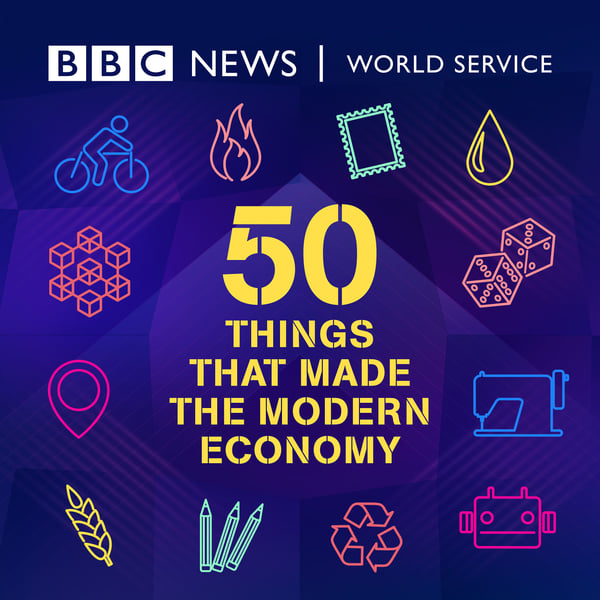Cellophane
50 Things That Made the Modern Economy
BBC
4.8 • 2.6K Ratings
🗓️ 1 April 2019
⏱️ 9 minutes
🧾️ Download transcript
Summary
Transcript
Click on a timestamp to play from that location
| 0:00.0 | This is a cold port song written in 1934. |
| 0:24.2 | On what else might you compare the object of his affections to a summer's day? |
| 0:32.6 | Cellophane? |
| 0:35.6 | Of course, the latest in clear plastic food packaging. |
| 0:40.7 | That wouldn't happen nowadays. |
| 0:42.4 | And not just because the Les Malifluous, your low-density polyethylene, doesn't rhyme. |
| 0:48.7 | Plastic packaging has a bad rap. |
| 0:51.8 | In the UK's Guardian newspaper, invited readers to share examples of annoyingly unnecessary |
| 0:57.6 | packaging, comments flooded in. |
| 1:01.7 | Shrink-wrapped cucumbers. |
| 1:03.4 | Apples in hard plastic tubes. |
| 1:05.7 | Pre-cut melon in little pouches. |
| 1:08.6 | Bananas in bags. |
| 1:10.7 | Doesn't Mother Nature already provide bananas with packaging of their own? |
| 1:15.9 | It all seems so obviously wasteful. |
| 1:19.2 | We'll come back to that seeming obvious. |
| 1:22.2 | But let's start our packaging story in a more innocent age. |
| 1:27.4 | Before anyone worried about plastic in landfills, or the sea, or the food chain. |
| 1:37.6 | It begins in 1904 at an upmarket restaurant in Vosge, France. |
| 1:45.1 | Then an elderly patron spills red wine over a pristine linen tablecloth. |
| 1:52.2 | Sitting at a nearby table is a Swiss chemist, Jacques Brandenberger. |
| 1:59.3 | He works for a French textile company, and as he watches the waiter change the tablecloth, |
... |
Please login to see the full transcript.
Disclaimer: The podcast and artwork embedded on this page are from BBC, and are the property of its owner and not affiliated with or endorsed by Tapesearch.
Generated transcripts are the property of BBC and are distributed freely under the Fair Use doctrine. Transcripts generated by Tapesearch are not guaranteed to be accurate.
Copyright © Tapesearch 2025.

